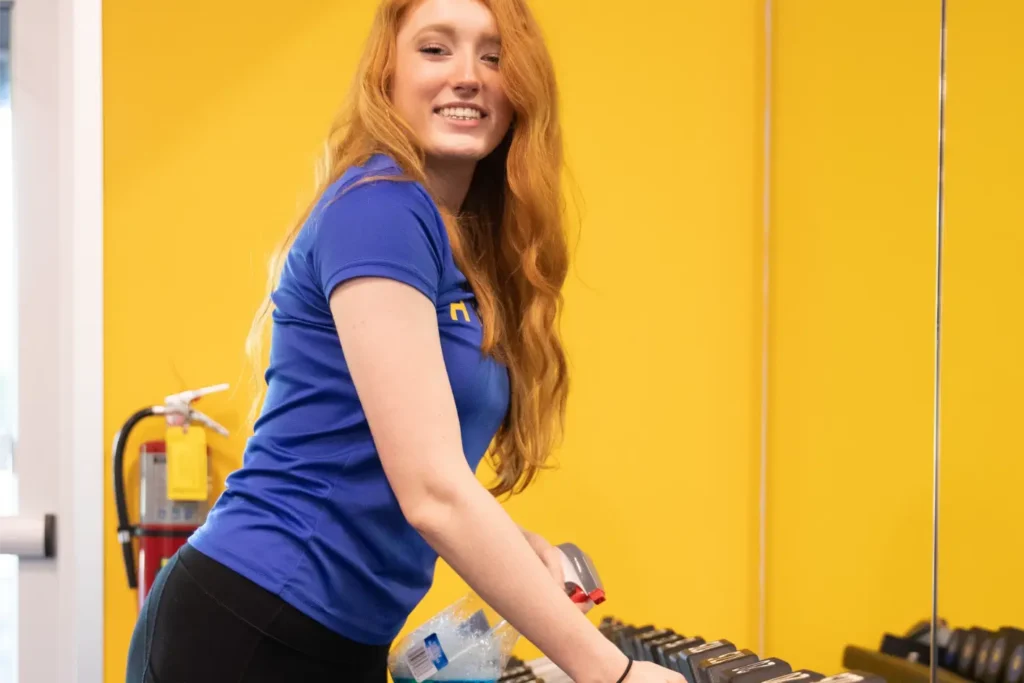We all know that working out is only half the battle when it comes to achieving our fitness goals. The other half? You guessed it – nutrition. It’s like fuel for your car; without it, you’re not going anywhere. But with the right kind, you’re cruising down the highway to gains-town!
Now, High-Intensity Interval Training (HIIT) is as the name suggests intense. Your body needs the right kind of fuel to keep up with this punishing pace. Fall short on your pre-workout nutrition, and you might find yourself feeling sluggish, tired, and unable to give your all. Worse yet, pushing too hard without enough fuel could even lead to injury.
So, what should you be eating before a HIIT workout to ensure peak performance? Let’s break it down…
Why do you need a well-planned meal before a HIIT workout?
Imagine this: you’re doing a full-on sprint, heart pounding, legs pumping, sweat dripping. Then, you switch gears and slow it down to a brisk walk. Just as you catch your breath, you’re back to sprinting. This cycle of high-intensity bursts followed by slower-paced recovery periods repeats several times throughout your workout.
Sounds intense, right? That’s because it is! In a HIIT workout, you’re constantly on the move, constantly burning energy. This is fantastic for torching calories and shedding those pesky pounds. But, all this intense activity requires a constant supply of energy.
Here’s where the right nutrition comes into play. Your body needs that fuel to keep the engine running smoothly. If you’re not properly fueled, you’ll likely hit a wall halfway through your workout and struggle to finish. But with the right pre-workout meal, you can keep that energy high and make it through your HIIT session like a champ!
What to eat before a HIIT workout?
Let’s get to the meat (and potatoes) of the matter – what should you actually eat before a HIIT workout?
Carbohydrates
First up, carbs. These are your body’s main source of energy. They’re like the gasoline that powers your workout engine. Without enough carbs, you’ll likely find yourself running out of steam mid-workout.
Before a HIIT workout, opt for complex carbs like whole grains, fruits, and vegetables. These will give you a steady release of energy throughout your workout. Think oatmeal, brown rice, or a banana. These are all great pre-workout options that will keep your energy levels consistent.
What carbohydrates should you avoid?
Not all carbs are created equal. It’s important to know which ones to reach for and which ones to avoid.
Steer clear of refined carbs like white bread, pastries, and sugary drinks. These are known as simple carbs and they’re quickly digested by your body. This might sound like a good thing, but it’s actually not. Simple carbs cause a rapid spike in your blood sugar, followed by a crash. This crash can leave you feeling fatigued and lethargic – not exactly what you want in the middle of a high-intensity workout.
Proteins
While it’s often considered more important post-workout, having some protein before your HIIT session can also be beneficial. It can help prepare your body for the muscle repair that follows the workout.
Try to include a source of lean protein in your pre-workout meal. This could be a slice of turkey, a cup of Greek yogurt, or even a protein shake. Just remember, you don’t want to go overboard. Too much protein can leave you feeling sluggish and slow during your workout.
Hydration
During a high-intensity workout, you’re going to be sweating buckets. This means you’re losing water and electrolytes, both of which are crucial for muscle function and energy.
Make sure you’re well-hydrated before you start your workout. This doesn’t mean guzzling a gallon of water right before you hit the gym, but rather consistently drinking water throughout the day. Also, consider a sports drink or coconut water for those essential electrolytes.
What about healthy fats?
Healthy fats, like those found in avocados, nuts, and olive oil, can indeed be part of your pre-workout meal, but with a caveat. Fats take longer to digest than proteins and carbohydrates. This means that if you consume too much fat just before a workout, your body may be more focused on digestion rather than providing energy for your muscles.
That being said, a small amount of healthy fats can be beneficial. They can provide a slow and steady release of energy throughout your workout. But the key word here is ‘small’. A handful of nuts or a few slices of avocado should do the trick.
If you’re into eating healthy to optimize your fitness results, you may also be interested in the meal plan that helps you to lose fat and gain muscle.
When is the best time to eat before a workout?
The general rule of thumb is to eat a complete meal containing carbs, protein, and fat about 2-3 hours before you exercise. This gives your body ample time to digest and convert the food into usable energy.
But what if you’re not a plan-ahead kind of person? Or maybe your schedule is just too unpredictable? No sweat! If you can’t fit in a full meal 2-3 hours before your workout, you can still eat a decent pre-workout snack or mini-meal 45-60 minutes prior. This could be something like a banana with a spoonful of almond butter or a small Greek yogurt with a handful of berries.
Keep in mind that everyone’s body is different. Some people can eat right before a workout and feel great, while others need more time to digest. It’s important to listen to your body and do what feels best for you.
And remember, if you’re doing a HIIT workout first thing in the morning and can’t stomach a meal beforehand, at the very least, try to consume a small, easily digestible snack or drink to provide a quick source of energy. This could be a piece of fruit or a simple protein shake.
What if you are on a special diet?
Here we’ll see how you can adjust your pre-workout meal based on your diet.
Keto diet
For a pre-workout meal on a keto diet, you’ll want to stick to your usual macronutrient ratios. This means a meal high in healthy fats, moderate in protein, and low in carbs. For example, you might have a spinach and cheese omelet cooked in olive oil.
You might be thinking, “But what about carbs for energy?” Well, once your body is fully adapted to ketosis, it becomes efficient at using fat for energy. However, if you’re new to keto or find yourself lacking energy during workouts, you might want to consider a targeted ketogenic diet (TKD), where you consume a small amount of fast-digesting carbs before your workout.
Intermittent fasting
If you’re doing a HIIT workout during your fasting window, you might not be able to eat a traditional pre-workout meal. But, you can still fuel your workout. Stay hydrated and consider using branched-chain amino acids (BCAAs) to help protect your muscles during your workout.
If your workout falls within your eating window, aim for a balanced meal or snack 1-2 hours before your workout. This could be something like grilled chicken with veggies or a protein shake with a piece of fruit.
Final thoughts
Remember, everyone’s body is unique and what works for one person might not work for another. Experiment with different foods and timings to see what makes you feel your best during your workout. The key is to listen to your body and provide it with the nutrients it needs to perform at its peak.





